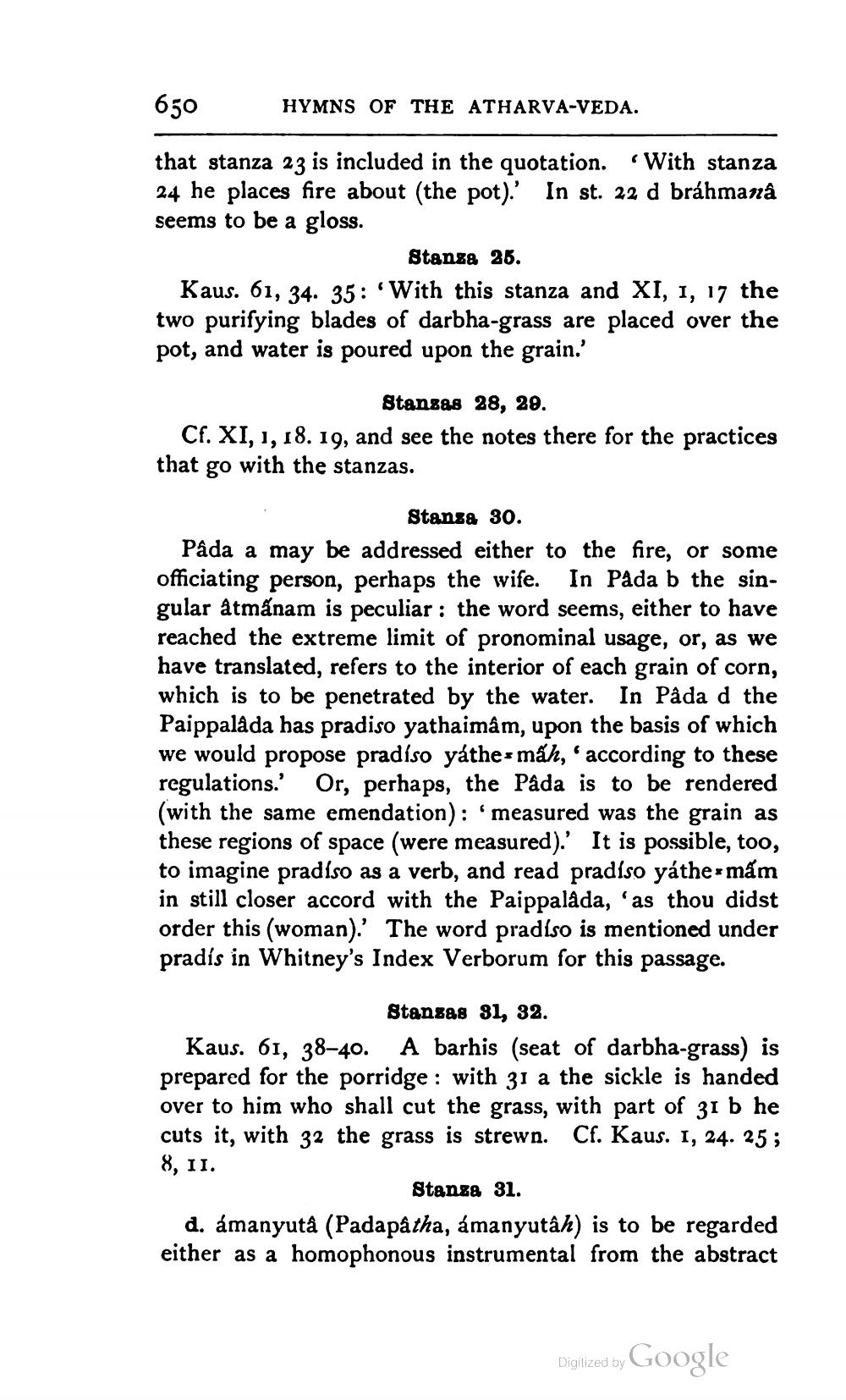________________
650
HYMNS OF THE ATHARVA-VEDA.
that stanza 23 is included in the quotation. With stanza 24 he places fire about (the pot). In st. 22 d brahmana seems to be a gloss.
Stansa 26. Kaus. 61, 34. 35: With this stanza and XI, 1, 17 the two purifying blades of darbha-grass are placed over the pot, and water is poured upon the grain.'
Stangas 28, 29. Cf. XI, 1, 18. 19, and see the notes there for the practices that go with the stanzas.
Stanza 30. Pâda a may be addressed either to the fire, or some officiating person, perhaps the wife. In Pada b the singular atmanam is peculiar : the word seems, either to have reached the extreme limit of pronominal usage, or, as we have translated, refers to the interior of each grain of corn, which is to be penetrated by the water. In Påda d the Paippalåda has pradiso yathaimâm, upon the basis of which we would propose pradíso yáthes máh,' according to these regulations. Or, perhaps, the Pâda is to be rendered (with the same emendation): 'measured was the grain as these regions of space (were measured).' It is possible, too, to imagine pradiso as a verb, and read pradiso yáthe-mám in still closer accord with the Paippalàda, 'as thou didst order this (woman).' The word pradiso is mentioned under pradís in Whitney's Index Verborum for this passage.
Stangas 31, 32. Kaus. 61, 38–40. A barhis (seat of darbha-grass) is prepared for the porridge: with 31 a the sickle is handed over to him who shall cut the grass, with part of 31 b he cuts it, with 32 the grass is strewn. Cf. Kaus. 1, 24. 25; 8,11.
Stanza 31. d. ámanyutå (Padapatha, ámanyutâh) is to be regarded either as a homophonous instrumental from the abstract
Digitized by Google




